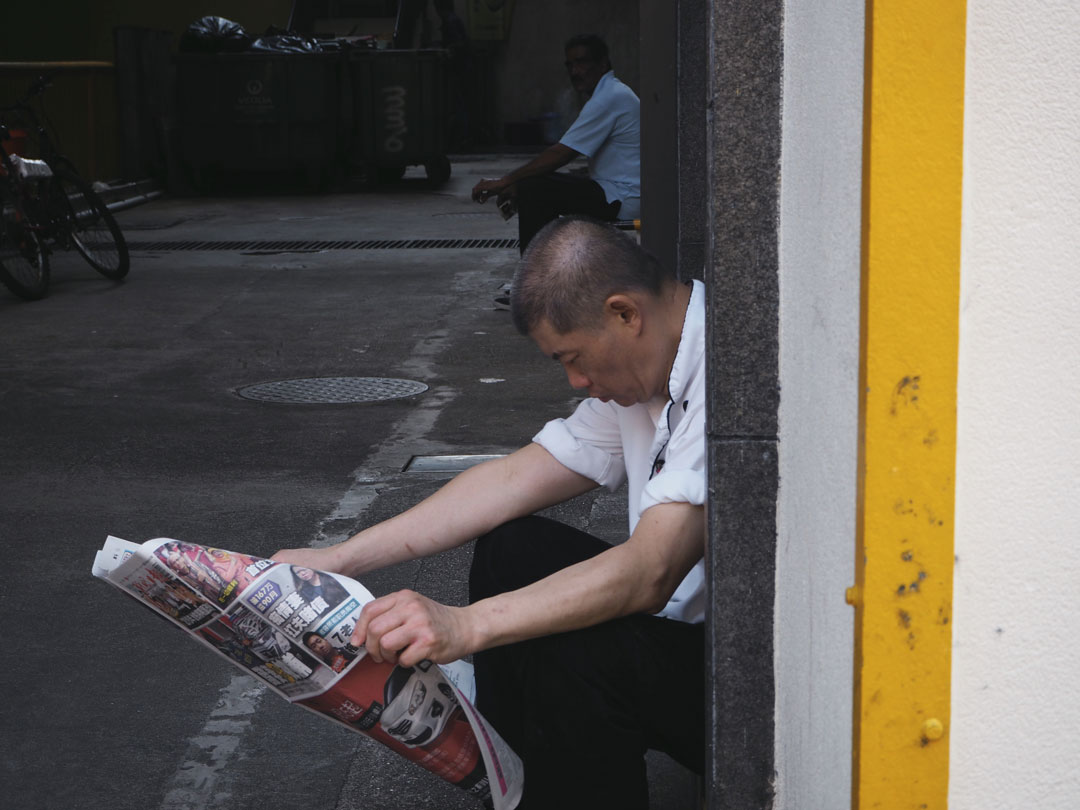Chinese tabloids Lianhe Wanbao and Shin Min Daily News flourish for one simple reason: real life is stranger than fiction.
While broadsheets like The Straits Times and Lianhe Zaobao maintain a degree of objectivity and political correctness, Wanbao and Shin Min blatantly exploit our basic curiosity about other people’s lives. As such, their stories tend to resemble mere gossip.
“Tabloids appeal to a certain kind of urban sensibility for news reporting that is juicier and less formal,” says Associate Professor Ong Chang Woei from the National University of Singapore, who teaches a class on Chinese media in Singapore.
Perhaps that is why on 12 September, a day after Halimah Yacob was pronounced as the only eligible candidate for President, Shin Min’s cover story was about a wife who threatened her husband with scissors after he used their maid’s toothpaste. Meanwhile, news on Halimah Yacob was relegated to a corner of the front page, which it shared with an advertisement for medicated oil.
Similarly, Wanbao’s main cover story on the same day discussed the worst iPhone announcement leaks in Apple’s history. This story took up at least twice the real estate of Halimah Yacob’s ‘win’.
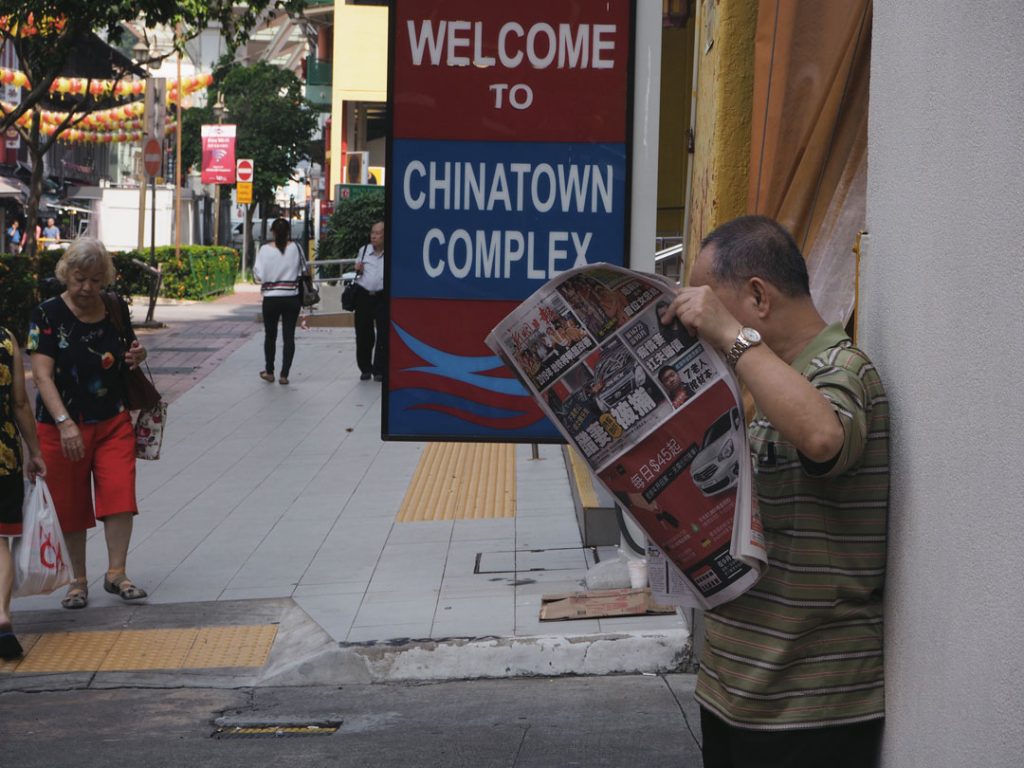
Prof Ong suggests, “Chinese tabloid gossip is associated with the ‘lower’ stratum of society. Since early times, the survival of Chinese tabloids depends on its ability to link up with shareholders of local Chinese mass entertainment circles. Conversely, mass entertainment also relies on the tabloids for publicity.”
Simply put, the mass appeal of Wanbao and Shin Min means they strategically focus on topics that the man on the street is interested in. In this case, good old gossip is as mass as it gets.
Former Wanbao reporter Yvonne shares, “It’s very important to write things that this lower income group cares about and can understand, things they actually bother to read from start to finish. Writing simply requires much effort and thought.”
This endeavour seems to have paid off. To readers’ regular delight and exasperation, Wanbao and Shin Min successfully tap into our inherent love-hate relationship with gossip.
We might say we hate it, but we lap it up anyway.
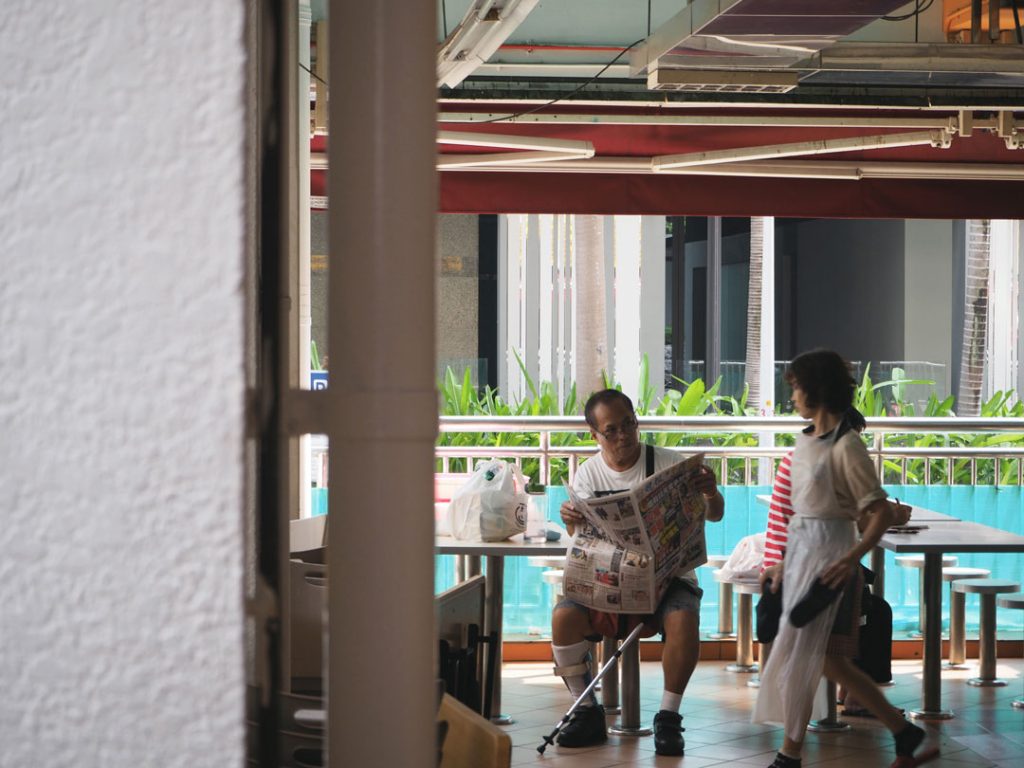
When local artiste Rui En was embroiled in a spat with her neighbours last year, it’s rumoured that Wanbao staked out her home for hours on end, hoping for soundbites.
And just four years ago, local socialite Arissa Cheo openly voiced her displeasure about the same tabloid “stalking her house and trying to get her parents to speak to them” about her private life.
Over time, these types of incidents have contributed to a negative (but not inaccurate) perception of Chinese tabloids.
Nonetheless, Yvonne saw it as her responsibility to write stories that would set her apart from a Zaobao reporter, who would approach the same issue from a policy level. She explains, “This meant doing more groundwork, talking to more people, growing a thicker hide, which all increased the likelihood of landing juicy scoops.”
As a Wanbao reporter, she also tirelessly navigated shades of the human experience, especially death. Many assume sensational tabloids are the last thing a deceased’s family wants to deal with, but Yvonne informs me otherwise.
She shares, “Many people we approach at the mortuaries are fine with sharing information about their loved ones for various reasons. The concept of privacy and personal space is not universal, and our job as reporters is to ask and adjust our working procedures accordingly.”

“We’re always knocking on doors. If we know the accused lives in a particular block and we want a quote from their neighbour, we’ll go in the morning, afternoon and night. Out of 20 times, they might only open the door once, and then you might only have time to ask one question. But that soundbite can make your entire story,” he says.
Lionel also emphasises that teamwork helps Chinese tabloid reporters obtain insider knowledge and exclusive scoops that have come to define their profession.
“It’s all about coordination when you’re putting together a two-to-three page story in four hours. You have people talking to sources and people in the newsroom collating the information. It’s not a one-man show.”
As their focus is on “getting the job done”, Lionel adds that his former team regularly shared contacts with each other. This teamwork is uncharacteristic of a profession that can be extremely protective about divulging one’s individual contacts.
For what it’s worth, the “despicable” work done by reporters like Yvonne and Lionel doesn’t come from a place of malice. They genuinely see value in the type of news they publish, as long as it’s relatable and informative to their target audience.
Yet to assume gossip is simply ‘neutral good’ is to risk painting with the same simplistic strokes as its detractors.
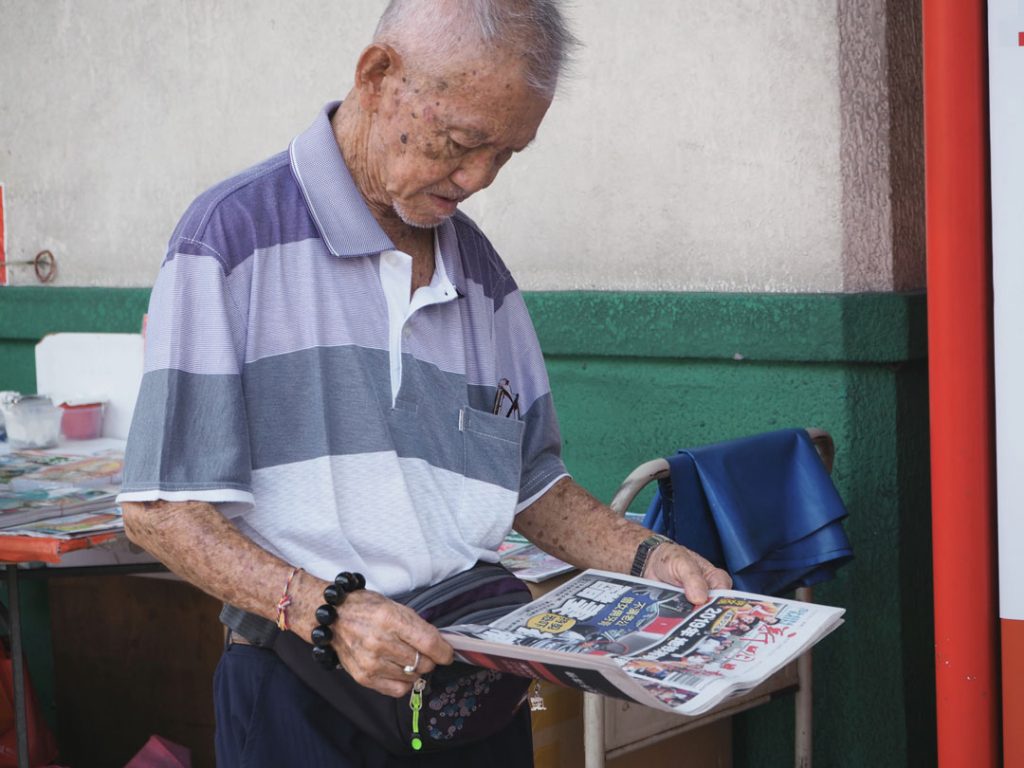
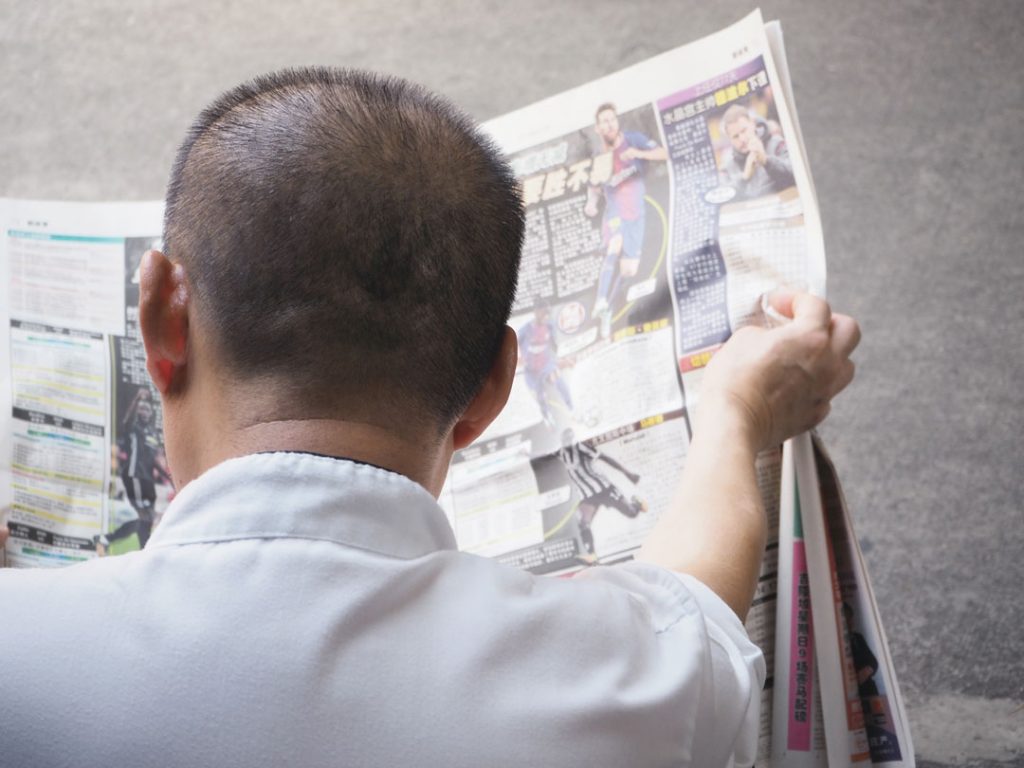
Mr Goh, a Wanbao reader in his 60s whom I find enjoying his copy of Wanbao at Bras Basah Complex, tells me that one’s thoughts on scandalous gossip will be reflected in one’s actions. Not a fan of excessive gossip, he says, “With some things, the more [the papers] say, the more it might influence society to be bad.”
His concerns are valid, but they don’t negate the success of Wanbao and Shin Min. Where content is concerned, ‘success’ is less about morality and more about achieving its purpose. After all, the tabloids have never professed to be a beacon of righteousness, merely a fun and easy read.
Unlike Mr Goh, a majority of elderly still find value in gossip. For them, perhaps its most tangible value lies in the undemanding conversation topics it provides. In other words, gossip functions as the most potent social lubricant.
American author Joseph Epstein once likened sharing gossip to reinforcing an existing kinship between two people. He says, “It’s an act of social intimacy. When one comes to another person with a delightful bit of gossipy news, one is kind of conferring a gift on that person, especially if the motives are purely that of entertainment and/or analysis of character.”
This sentiment is similar to what Wendy Wee tells me when I catch her in Chinatown. The sprightly 65-year-old buys Wanbao daily because she is “addicted” to the paper. On days when the makeshift newspaper stand at Chinatown Complex runs out of her favourite paper, she reluctantly forks out a dollar for Shin Min.
“It’s not nonsense lah. I can share with my friends. Sometimes my friends don’t know the news, then I will teach them,” she admits, telling me that she gets all her news from Wanbao as she finds the broadsheets dull and uninteresting.
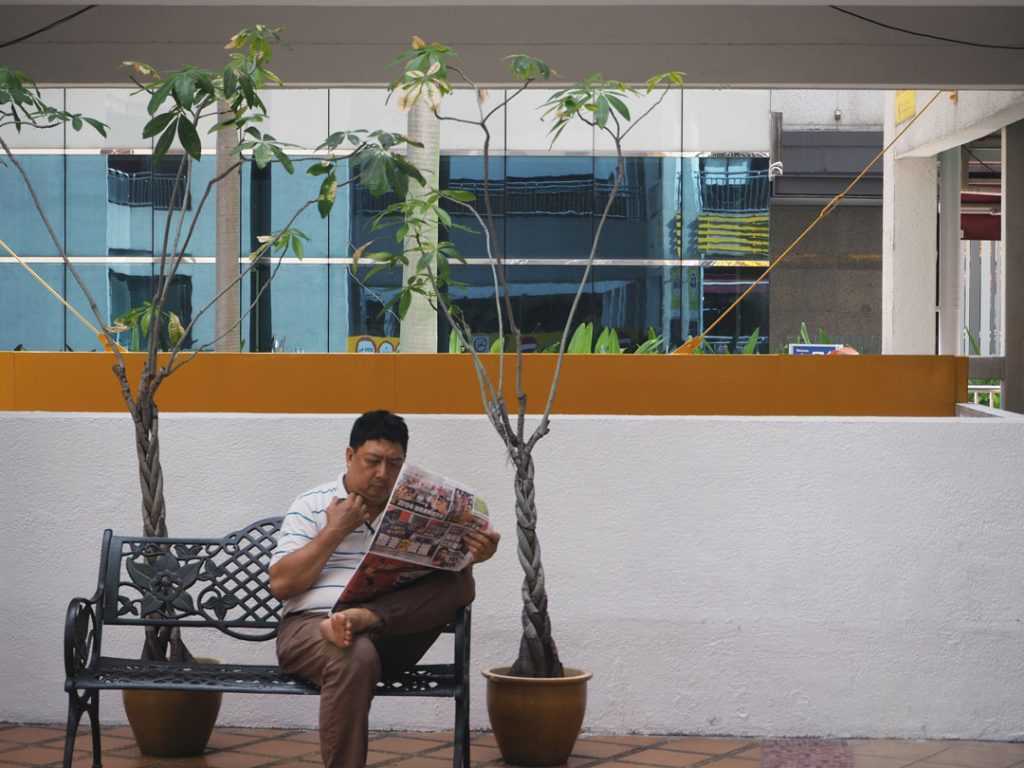
Jessica, a 60-year-old cleaner from Malaysia, imparts a surprisingly sobering life lesson: “People naturally enjoy stories that are more colourful and exciting. There are both good and bad aspects of gossip. Celebrity gossip teaches us that no one is perfect. Rich people also have troubles. We’re all human in the end.”
Another elderly reader I speak to, Mr Qi, also professes to apply the lessons he gleans from the tabloids to his life. For example, he’s now more aware that too much gambling might land one in dire circumstances, and even jail.
So perhaps Chinese tabloids like Wanbao and Shin Min aren’t innately bad if they are able to raise awareness and cultivate one’s compassion and empathy for others.
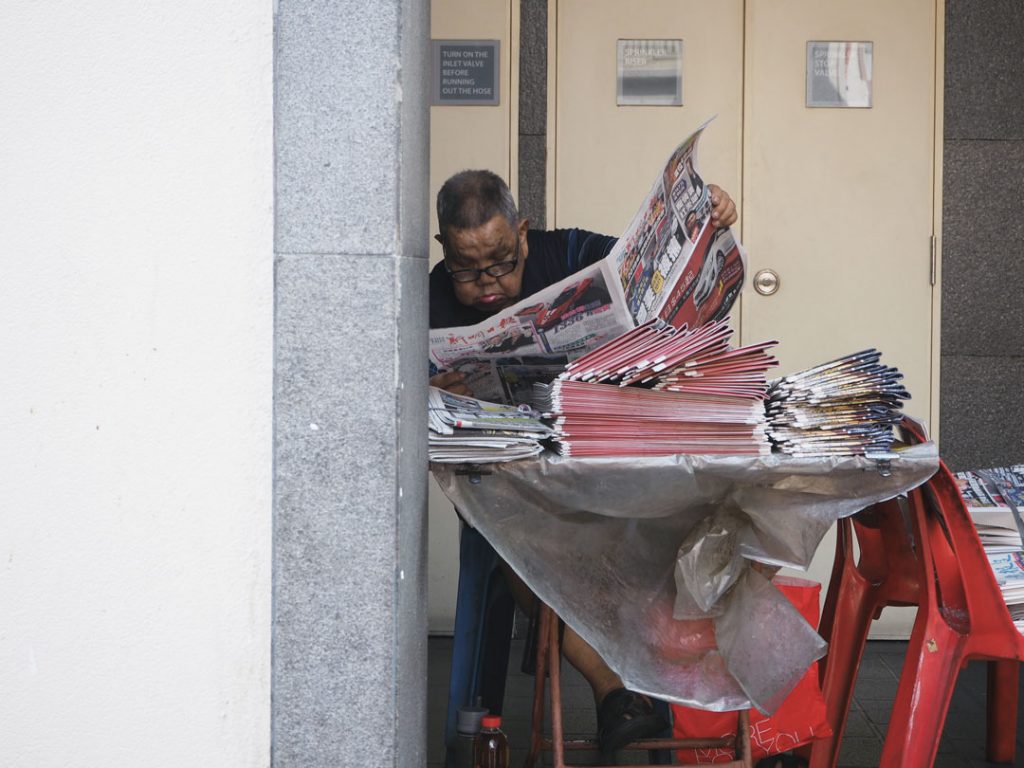
Lionel also reminds me that it’s easy to call something petty gossip, such as neighbourly disputes, when it doesn’t affect your life.
Standing in Chinatown observing the stream of elderly picking up their favourite tabloids before looking for a bench or pausing in the middle of the walkway to devour an article, I am struck by the understated significance of the Chinese tabloids.
I think about the many things Chinese tabloids can be: sleazy, shameful, salacious, sensational, abhorrent.
Then I think about the elderly like Wendy and Mr Qi, who might never develop an appreciation for more worldly news because of their backgrounds.
They might never pick up a copy of The Straits Times or Zaobao, but every day at about 4pm, they wait in line for a tabloid that makes them feel like they belong. To them, tabloids are neither trashy nor trivial, but a valuable distraction.

